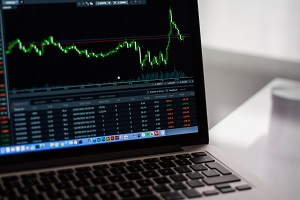 There are many different fields of social science studies make a marked impact on the rise and fall of individual economies. Economics itself is a social science that studies observable human behavior and its effects on production, distribution, and consumption.
There are many different fields of social science studies make a marked impact on the rise and fall of individual economies. Economics itself is a social science that studies observable human behavior and its effects on production, distribution, and consumption.
The general field of social science relies on observed and confirmed bodies of knowledge, just as with any physical science. There is a consistent study of causes and effects. All of these components are relevant to economics as well, and often findings from one field of study, such as sociology, might illuminate certain causes behind market trends and values.
One of the fundamental premises in Economics is that there are resources limited by quantity and utility, resulting in different market values based on human behavior and perception (Robbins 1932). Concepts such as scarcity, and the law of supply and demand influence the actions of certain communities. There are also gaps in what certain economic concepts can account for. Economists have pointed to how scarcity does not explain all the macroeconomics behind high unemployment (Blaug 2007), for instance, which another social science may explain. By examining the influence other sciences have on economics, connections between all the social sciences have become apparent.
The study of sociology is a social science that examines societies at large, researching all the aspects of individual societies. Sociologists study social institutions like government, religion, and marriage, all that have a major impact on the economy.
When researching a specific economy, it’s necessary to look at some certain financial factors that are related with the data regarding marriages and government policies influenced by constituencies and demographics. For example, studies in economics and sociology have revealed links between family structures and economic growth (Mathur 2015). The specific family structures prevalent in a certain community can result in quantifiable impacts on how economics is applied. As a result, research findings on sociological influences can result in new economic applications and approaches.
Economics and political science are directly linked as well. Political science is the study of the State and people’s relation to the State, which includes policies affecting how people make and spend money. The healthier a political body, often the better the economic state. A government that creates good policies can create economic growth (Shapiro 2013). In this way, the activity of political science has a direct influence on economics.
There is also a disagreement on the relationship between policy and economics. Political bodies often push for policies that affect the economy, such as pushes for job creation to enact the growth (Fieldhouse, Mishel, Eisenbrey, Bivens 2011). Other groups within government push back against these policies. This, essentially, breaks down to disagreements between the effectiveness of the Keynesian economics and fiscal conservatism.
Psychology studies the human behavior and mind as well as the causes and effects, behind human behavior, that influence the decisions made regarding the economy. There have also been many pieces of research on how psychology influences consumer buying behavior (Mott).There is the psychology behind marketing and appealing to consumer wants, and psychology behind consumer decisions.
There has also been the substantial growth in the field of behavioral economics. This area of study looks at how certain human behaviors influence the market and existing economic concepts such as the law of diminishing marginal utility which directly influence buying decisions. The two fields have grown together over the years. Economics was once built on the idea of humans as rational who maximize their own interests, but more complex issues of human self-interest and rationality exist today.
Important economic factors, such as stock market prices, supply, and demand, rely heavily on consumer perceptions. Human perceptions and decisions are tied strongly to other social sciences, such as sociology and psychology. Striving to understand these other fields of science increases understanding toward economic realities. The patterns of human behavior that influence the economy can be addressed by other social sciences, all of which consequently influence economics.
References:
- Blaug, Mark (2007). “The Social Sciences: Economics.” The New Encyclopædia Britannica, v. 27, p. 343 [pp. 343–52].
- Fieldhouse, Andrew; Mishel, Lawrence; Eisenbrey, Ross; Bivens, Josh (2011). “Putting America back to work.” Economic Policy Institute. http://www.epi.org/publication/putting_america_back_to_work_policies_for_job_creation_and_stronger_economi/
- Henriques, Gregg (2015). “Finding the Missing Link Between Economics and Psychology.” Psychology Today. https://www.psychologytoday.com/blog/theory-knowledge/201506/finding-the-missing-link-between-economics-and-psychology
- Mathur, Aparna (2015). “Why Marriage is Good Economics.” Forbes. https://www.forbes.com/sites/aparnamathur/2015/10/30/the-family-foundations-of-economic-growth/#c7ec19b2a9bf
- Mott, Elizabeth. “Psychological Factors That Influence Consumer Buying Behavior.” Small Business Chronicle. http://smallbusiness.chron.com/psychological-factors-influence-consumer-buying-behavior-80618.html
- Robbins, Lionel (1932, 1935, 2nd ed.). An Essay on the Nature and Significance of Economic Science, London: Macmillan.
- Shapiro, Gary (2013). “Six Ways to Create Economic Growth.” Forbes. https://www.forbes.com/sites/garyshapiro/2013/01/23/six-ways-to-create-economic-growth/#3b9a49c57e32